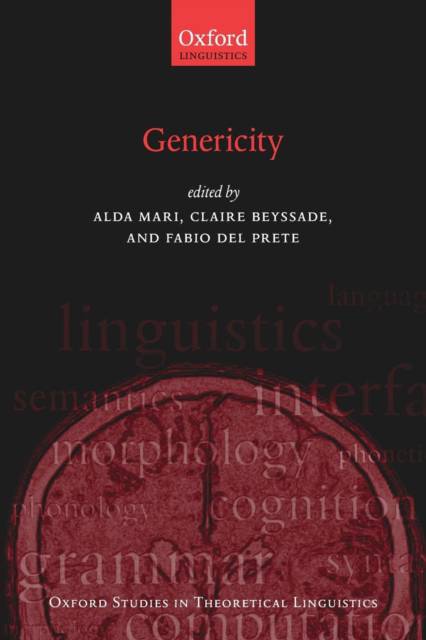
- Afhalen na 1 uur in een winkel met voorraad
- Gratis thuislevering in België vanaf € 30
- Ruim aanbod met 7 miljoen producten
- Afhalen na 1 uur in een winkel met voorraad
- Gratis thuislevering in België vanaf € 30
- Ruim aanbod met 7 miljoen producten
Zoeken
Omschrijving
This book provides an up-to-date introduction to the study of generics and pursues the enterprise of the influential Generic Book edited by Gregory Carlson and Jeffry Pelletier, which was published in 1995. Genericity is a key notion in the study of human cognition as it reveals our capacity to organize our perceived reality into classes and to describe regularities. The generic can be expressed at the level of a word or phrase (ie the potato in The Irish economy became dependent upon the potato) or an entire sentence (eg in John smokes a cigar after dinner, the generic aspect is a property of the expression, rather than any single word or phrase within it). This book gathers new work from senior and young researchers to reconsider the notion of genericity, examining the distinct contributions made by the determiner phrase (eg the notions of kind/individual) and the verbal predicate (eg the notions of permanency, disposition, ability, habituality, and plurality). Finally, in connection with the whole sentence, the analytic/synthetic distinction is discussed as well as the notion of normality. The book will appeal to both students and scholars in linguistics, philosophy and cognitive science
Specificaties
Betrokkenen
- Uitgeverij:
Inhoud
- Aantal bladzijden:
- 458
- Taal:
- Engels
- Reeks:
Eigenschappen
- Productcode (EAN):
- 9780199691814
- Verschijningsdatum:
- 1/03/2013
- Uitvoering:
- Paperback
- Formaat:
- Trade paperback (VS)
- Afmetingen:
- 155 mm x 231 mm
- Gewicht:
- 408 g

Alleen bij Standaard Boekhandel
+ 261 punten op je klantenkaart van Standaard Boekhandel
Beoordelingen
We publiceren alleen reviews die voldoen aan de voorwaarden voor reviews. Bekijk onze voorwaarden voor reviews.










